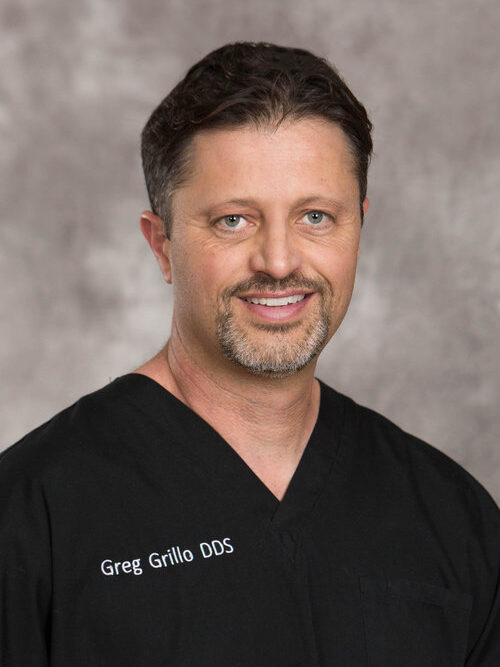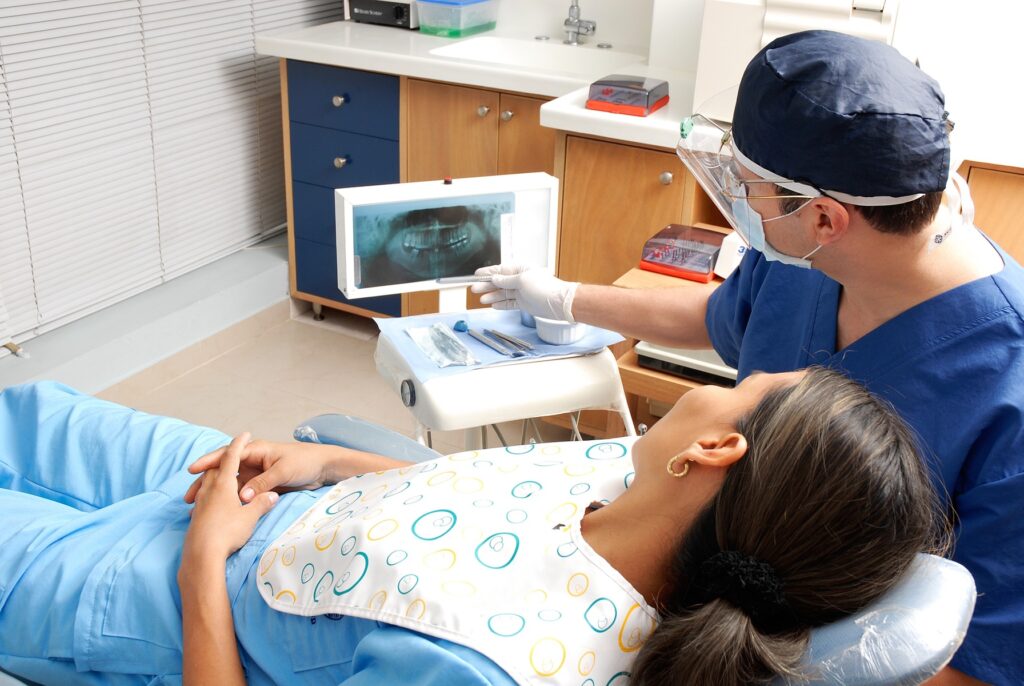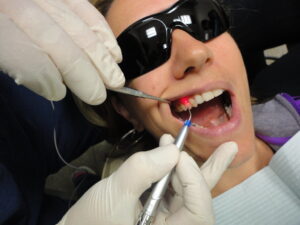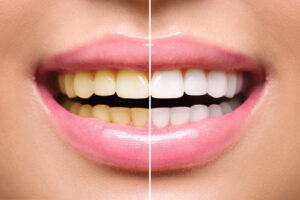The majority of people feel some anxiety when going to the dentist, but it does not stop them from going. However, surveys estimate that nearly 1 in 4 people have severe dental fears that are enough to interfere with dental care. What’s more, approximately 12% of people have extreme dental fear.
Dental fears or dental anxiety can have negative consequences on your oral health. By leading to poor dental attendance, dental fears can prevent you from seeking necessary dental treatment such as a root canal or cause you to avoid preventive care.
Today, we’re going to talk about the top 5 dental fears – specific things or a combination of things that cause dental anxiety. We will also discuss some dentist-recommended tips on overcoming your dental fears.
Dental Fears from Losing Control
When you’re in a dentist’s chair, you’re laying down with your head tilted back, your mouth open, and your arms by your side. Moreover, the treatment provider needs to be up close and in your personal space. Also, there’s a bunch of scary looking instruments on a tray just by your head. This puts you in a very vulnerable position, and it can create a sense that you don’t have control. This can lead to a lot of dental anxiety.
The solution is to share your dental fears with your dentist and to establish a protocol for getting help. For example, you can tell your dentist you’ll put your hand up when you want them to stop the treatment for a short time and let you regather yourself. This can give you a sense of control and overcome your dental fears.
Dental Anxiety from Drilling
The sound of a high-speed dental drill going at about 300,000 RPMs can create a lot of dental anxiety for some folks, including a rise in blood pressure. In addition, there’s air turbulence causing a high-pitched noise that adds to a person’s dental fears.
Dealing with this can be quite simple. Some dental offices offer noise-cancelling headphones with music. You can also bring your own music and headphones. It will not totally eliminate the sound and anxiety, but it can make a significant difference.
Fear of Dental Pain
This is an expected and common fear. Nobody wants to experience painful injections in their gums and similar potentially painful procedures. There is a general perception that dental procedures are uncomfortable, leading to dental fears of pain. This is not necessarily true, however. It’s true that sometimes there can be some mild discomfort, but for the most part, dental procedures are not associated with severe pain.
These days most dental professionals are very in tune with keeping patients comfortable. Some of the modern-day anesthetics available to dentists today are far more advanced than Novocain. They can absorb extremely well and create a very profound numbness, ensuring you don’t feel any pain during your dental treatment. Of course, qualified dental professionals know how to control pain. But a skilled dental provider not only understands your dental fears but proactively talks to you about how you feel about dental pain. Sharing your dental anxiety with your provider and letting them know is important.
Fear of Choking or Gagging
Some people are more prone than others to gagging. Even brushing teeth can cause gagging in some individuals. Placement of devices like a dental X-ray sensor can cause even the best of us to gag or get a choking sensation, creating dental fears during a dentist’s appointment.
This is again something you should share with your dental team. There are some very interesting techniques that can help with gagging. A little bit of table salt on the back of your tongue is a quick and easy solution to this problem. We don’t know how it works, but it works well to knock down the gag reflex. Some of the suction devices in use today can also accomplish the same thing by keeping secretions and water out.
Dental Fears of Equipment
A dentist’s chair is a very unique environment. There is a lot of strange and scary looking equipment in close proximity to your head. This includes drills, hand instruments, tubes, etc. Looking at all this equipment can tie in with a fear of dental drills and dental pain and cause a fair amount of dental anxiety.
The solution is to tell your dentist about your dental fears. This way they can keep equipment out of sight as much as possible. Also, the slow techniques and gel anesthetics available today result in most people being much more comfortable with shots, etc., than they imagined or experienced in the past.
Talk to Your Dentist About Solutions for Overcoming Dental Fears
These 5 common dental fears are very identifiable and real. You should not feel like there’s something wrong with you for experiencing dental anxiety. The important thing is to share your dental fears with your dental team. That way they can find a solution and keep you comfortable during your appointment. If your dentist is not addressing your dental anxieties, it may be time to find a new provider.
If you have dental fears, understanding what is causing them can help you find a solution. We hope this blog has done just that and will help you deal with your dental anxiety.
Express Dentist has a trusted network of experienced dental providers around the country who understand dental fears and how to deal with them. We can help you connect with a dental professional in your area who can offer solutions for your dental anxiety, allowing you to get preventive dental care or necessary dental treatment without feeling anxious or fearful.
So, if you’re looking for a new provider or your dental fears have kept you away from a dental office for too long, call Express Dentist today and make an appointment, get in, and see a provider that you’re comfortable with.
About the author

Dr. Greg Grillo
Dr. Greg Grillo DDS studied at the University of Washington where he received a bachelors degree with Honors and later attended dental school on the same campus. Following school Dr. Greg served in the United States Navy as a dental officer. During this time he received advanced training in specialty areas of dentistry while also treating families of members of the military.
As well as sharing valuable information on dentistry and oral health, Dr. Greg remains a practicing dentist to this day. He works with families in the Okanogan Valley where he lives with his wife and three children.
- Dr. Greg Grillo
- Dr. Greg Grillo
- Dr. Greg Grillo
- Dr. Greg Grillo
- Dr. Greg Grillo
- Dr. Greg Grillo
- Dr. Greg Grillo
- Dr. Greg Grillo
- Dr. Greg Grillo
- Dr. Greg Grillo
- Dr. Greg Grillo
- Dr. Greg Grillo
- Dr. Greg Grillo
- Dr. Greg Grillo
- Dr. Greg Grillo
- Dr. Greg Grillo
- Dr. Greg Grillo
- Dr. Greg Grillo
- Dr. Greg Grillo
- Dr. Greg Grillo
- Dr. Greg Grillo
- Dr. Greg Grillo
- Dr. Greg Grillo
- Dr. Greg Grillo
- Dr. Greg Grillo
- Dr. Greg Grillo
- Dr. Greg Grillo
- Dr. Greg Grillo
- Dr. Greg Grillo
- Dr. Greg Grillo
- Dr. Greg Grillo
- Dr. Greg Grillo
- Dr. Greg Grillo
- Dr. Greg Grillo
- Dr. Greg Grillo
- Dr. Greg Grillo
- Dr. Greg Grillo
- Dr. Greg Grillo
- Dr. Greg Grillo
- Dr. Greg Grillo
- Dr. Greg Grillo
- Dr. Greg Grillo
- Dr. Greg Grillo
- Dr. Greg Grillo
- Dr. Greg Grillo
- Dr. Greg Grillo
- Dr. Greg Grillo
- Dr. Greg Grillo
- Dr. Greg Grillo
- Dr. Greg Grillo
- Dr. Greg Grillo
- Dr. Greg Grillo
- Dr. Greg Grillo
- Dr. Greg Grillo
- Dr. Greg Grillo
- Dr. Greg Grillo
- Dr. Greg Grillo
- Dr. Greg Grillo
- Dr. Greg Grillo
- Dr. Greg Grillo
- Dr. Greg Grillo
- Dr. Greg Grillo
- Dr. Greg Grillo
- Dr. Greg Grillo
- Dr. Greg Grillo
- Dr. Greg Grillo
- Dr. Greg Grillo
- Dr. Greg Grillo
- Dr. Greg Grillo
- Dr. Greg Grillo
- Dr. Greg Grillo
- Dr. Greg Grillo
- Dr. Greg Grillo
- Dr. Greg Grillo
- Dr. Greg Grillo
- Dr. Greg Grillo
- Dr. Greg Grillo
- Dr. Greg Grillo
- Dr. Greg Grillo
- Dr. Greg Grillo
- Dr. Greg Grillo
- Dr. Greg Grillo
- Dr. Greg Grillo
- Dr. Greg Grillo
- Dr. Greg Grillo
- Dr. Greg Grillo
- Dr. Greg Grillo
- Dr. Greg Grillo
- Dr. Greg Grillo
- Dr. Greg Grillo
- Dr. Greg Grillo




